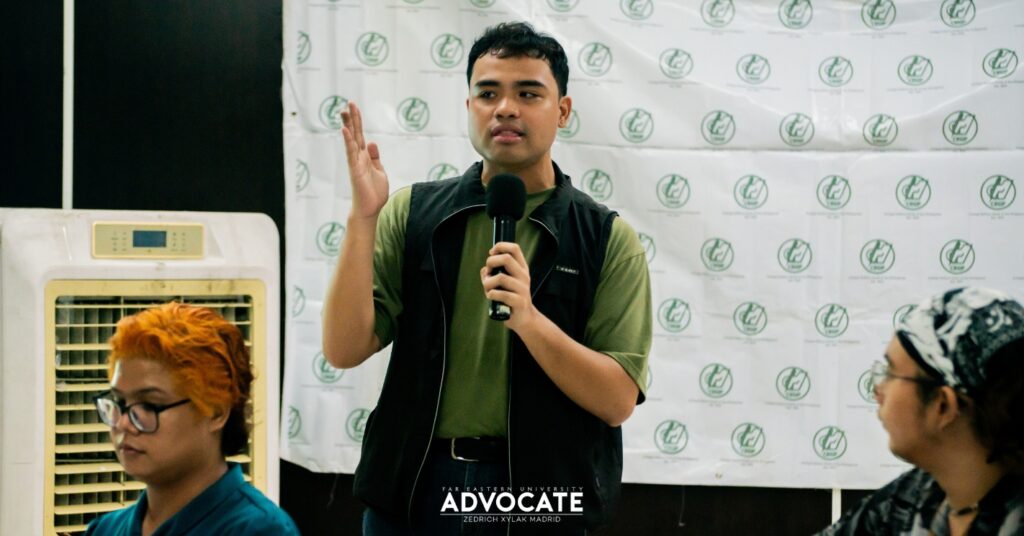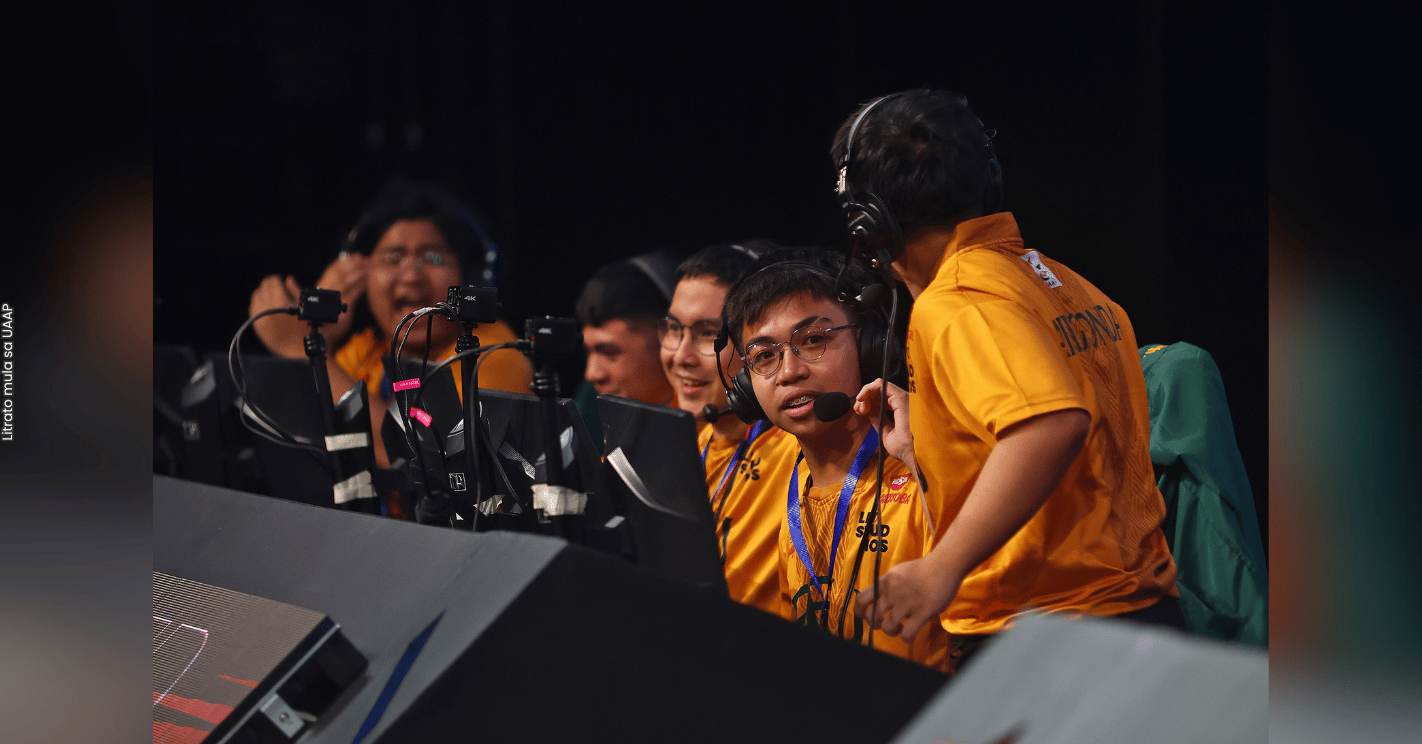
FEU to resume mandatory random drug testing in students
- April 03, 2023 09:45
FEU Advocate
July 25, 2024 14:56

College Editors Guild of the Philippines (CEGP) asserted that the attacks on students’ democratic rights including campus press freedom violations (CPFVs) are outcomes of a ‘commercialized, colonial, and repressive’ framework of the country’s education system.
Through Republic Act No. 11440, the Campus Press Freedom Day is also commemorated today, July 25 in protecting "the constitutionally guaranteed right to freedom of expression, speech and of the press."
However, CEGP's report shows the jeopardy student publications suffer from otherwise.
The organization recorded 206 cases of CPFVs from 2023 to 2024 which include 58 incidents of censorship, 37 withholding of funds, 35 administrative interventions, 24 harassments, 22 state surveillance, 17 red-tagging, and 13 other related cases.
In an interview with FEU Advocate, CEGP National Spokesperson Brell Lacerna enumerated the forms of CPFVs experienced by campus journalists.
“Nanatili pa rin ‘yung binabansagan naming eight deadly sins (What we call as eight deadly sins remains) which are eight CPFV: censorship, withholding of funds, administrative intervention, libel, harassment or killings, expulsion or suspension, meddling by the adviser, and non-mandatory collection of funds,” Lacerna stated.
More classifications of CPFVs are added to the list such as red-tagging and surveillance.
The spokesperson also mentioned Ilocos, Cordillera, National Capital Region, Central Luzon, Southern Tagalog, Bicol, Davao, and Negros-Panay as the most CPFV-attacked regions in the country.
Moreover, he explained that the education system that the guild described as ‘commercialized, colonial, and repressive’ must be analyzed.
Commercialized
CEGP’s report shows that commercialization or the act of businesses investing in universities affects the stories published by the campus press.
“Kaya ang nangyayari, nag-a-apply siya sa kung paano rin gumana ‘yung mga eskwelahan natin pagdating sa [pagbibigay ng] mga pangangailangan ng mga estudyante (So what happens is that it applies to how the school runs when it comes to catering to the needs of the students),” he said.
The campus-journalist also mentioned that student handbook policies force student publications to obey such guidelines.
Subsequently, editors of National University’s official student publication, The National, withdrew their CEGP membership for possible scholarship removal and expulsion due to being part of an external organization, stated in their 2023 revised student handbook.
Colonial
Lacerna also explained that the lessons taught in institutions and lack of appreciation for humanities programs and organizations, including student publications, are manifestations of colonialism in the country’s education system.
He emphasized that publications struggle to receive recognition for being official organizations.
“Nagkakaroon ng debate na para bang (There’s a debate that) the publications are as light as academic organizations, but they are not, because student publications are recognized institutions inside our universities and they have their own editorial policies as well in connecting to the administration in publishing articles and many more,” the spokesperson said.
Furthermore, a Manila Collegian staffer was allegedly forced by University of the Philippines (UP) College of Dentistry Dean Michelle Segarra to leave the college town hall meeting that they were supposed to cover.
Several cases of state surveillance and attacks especially from the abovementioned regions were also prevalent.
This includes the red-tagging experienced by Regina Masacupan of Himati-UP Mindanao after a congress last August 22, 2023 and former CEGP Central Luzon coordinators Kleng Mendiola and Denisse Macalino who were illegally arrested and under surveillance.
Repressive
Meanwhile, the spokesperson emphasized that half of the recorded cases against campus press freedom include three most common attacks which are censorship, administrative intervention, and withholding of funds.
“It really differs to many universities… Usually, OSA [Office of the Student Affairs] are the ones that restrict the way the organization works inside the school. They are the ones that are imposing bureaucratic policies, and sometimes, they blur the line of how the editorial independence of the student publications work,” Lacerna stated.
Additionally, he discussed how the Campus Journalism Act of 1991 failed to serve its purpose and was instead weaponized by administrations for ‘manipulative’ tactics.
“There is no mandatory collection of funds. Second, there is no mandatory establishment of student publication, and the third reason as to why, is because of weaponizing the term of technicalities,” the spokesperson added.
Lacerna also shared that student publications such as The Catalyst from the Polytechnic University of the Philippines and An Lantawan from Leyte Normal University were deprived of funding.
“‘Yung mga (The) student publications in SUCs [state universities and colleges], nakakaranas sila ng mahaba at (experience long and) bureaucratic process in collecting and disbursement of funds… While in private institutions, [funds are withheld] amidst this skyrocketing tuition fee hikes… They are being restricted to this kind of autonomy [na] dapat [taglay] ng mga (that they should have as) student publications,” Lacerna shared.
According to CEGP, school administrators tend to meddle in editorial policies of publications in favor of their interests.
Call for campus press freedom
In line with the campus press violations, CEGP asserted their overall demands to change the situation of the campus press by abolishing the National Task Force to End Local Communist Armed Conflict and the Anti-Terrorism Act of 2020.
Prior to the State of the Nation Address of Ferdinand ‘Bongbong’ Marcos Jr., CEGP hoped that the quality of education would be addressed.
“Kung nananatili ‘yung mga represibong polisiya ng ating edukasyon, hindi matatamasa ng mga student publications at ng buong sangkaestudyantehan ang kanilang tunay na nasyonalismo (If the repressive policies of education remain, student publications and the whole student body won’t achieve true nationalism),” Lacerna expressed.
However, the president’s speech about education focused on digitalizing education and adding benefits for teachers, with no mention on issues faced by student publications.
As of 2024, the organization has 11 regional and three provincial chapters across the Philippines.
Established in 1931, CEGP is the oldest tertiary student publication alliance in the Philippines leading people’s campaigns, especially in defending the campus press freedom situation and advocating for nationalist education in the country.
- Cassandra Luis J. De Leon
(Photo by Zedrich Xylak Madrid/FEU Advocate)









